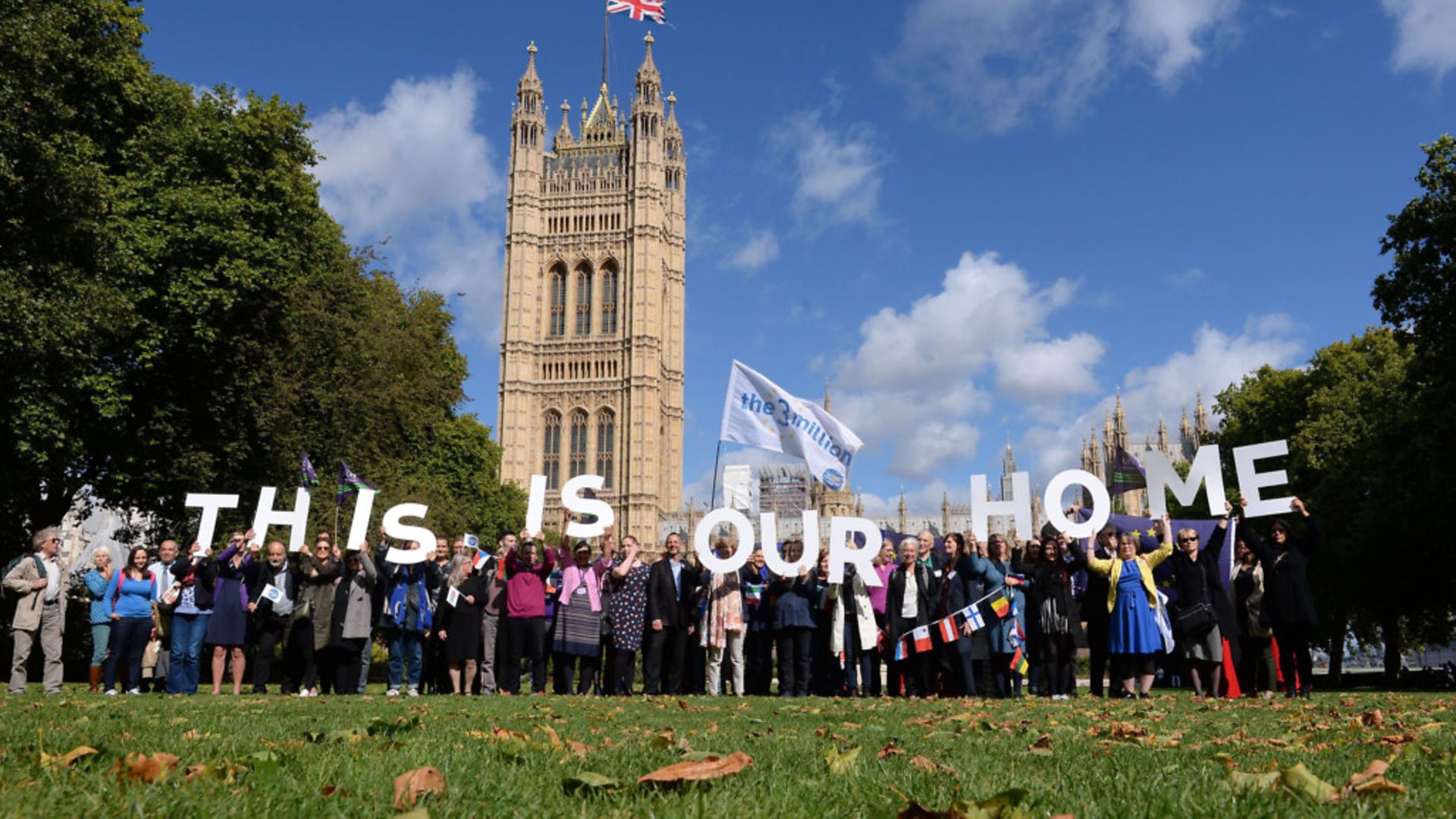
Two EU citizens have won a Court of Appeal challenge against the government over post-Brexit access to Universal Credit.
The court ruled, by a majority, that a refusal to allow two Romanian nationals to access the means-tested benefit amounted to “unlawful discrimination on the grounds of nationality”.
The Child Poverty Action Group (CPAG) said the ruling means that around 1.8 million EU nationals with “pre-settled status” (PSS) – effectively limited leave to remain in the UK – under the EU Settlement Scheme will be able to claim the benefit on the same basis as British citizens, should they need to.
The case against Therese Coffey’s Department for Work and Pensions (DWP) was brought by Razvan Tanase, a disabled man who came to the UK from Romania in January 2019, and his carer, Geanina Fratila, who has been in the UK since June 2014, supported by CPAG.
Changes to social security regulations introduced last year meant that the right to reside in the UK through PSS was no longer considered enough to give someone entitlement to means-tested benefits like Universal Credit.
Ms Fratila and Mr Tanase claimed this was unlawful discrimination on the grounds of nationality and contrary to EU law, the ruling says.
It says lawyers for the pair argued the regulations infringed Article 18 of the Treaty on the Functioning of the European Union, which prohibits discrimination.
In the ruling, Lord Justice McCombe said the pair argued that previous EU legal challenges “demonstrate that once an EU citizen is granted a right of residence in another member state, under the provisions of that state’s law, he/she is entitled to the same benefits as those to which a national of that state, also having such right of residence, would be entitled”.
Lawyers for the DWP argued there was “no room for a free-standing reliance upon Article 18” and the claim for discrimination should fail, the judgment says.
It was argued that even if Article 18 did apply, and the exclusion from entitlement to Universal Credit did lead to any discrimination, this was “objectively justified and therefore lawful”.
The court concluded unanimously that the pair were entitled to rely on Article 18.
Lord Justice McCombe and Lord Justice Moylan concluded that the discrimination under the amended regulations “amounts to unlawful discrimination on the grounds of nationality” and allowed Ms Fratila and Mr Tanase’s appeal.
Lord Justice Dingemans disagreed with the two judges on the issue of discrimination and said he would dismiss the appeal.
The pair took their case to the Court of Appeal after their legal challenge was dismissed by a High Court judge in April.
Martin Williams, CPAG’s welfare rights adviser, said: “This is a very welcome decision which confirms that EU nationals with pre-settled status in the UK cannot lawfully be treated less favourably than British nationals in respect of their entitlement to means-tested benefits.
“We are pleased that the Court of Appeal has recognised that the denial of this support to EU citizens, whose homes and lives are in the UK, is discriminatory and unlawful.
“The judgment will bring justice and protection to thousands of EU citizens who have made Britain their home whilst the UK was still part of the EU, or during the transition period, and are on the path to settled status in the UK.”
A government spokesperson said: “Applying to the EU Settlement Scheme means EEA citizens and their family members in the UK will be able to access benefits on the same basis as they do now. We are disappointed with this judgment and are considering our next steps.”
The EU Settlement Scheme was set up to allow eligible EU applicants to stay in the UK after the nation leaves the EU.
Settled status can be given to those who started living in the UK by the end of December 2020 and have lived in the country for a continuous five-year period.
Pre-settled status is given to those who started living in the UK by the end of December 2020, but do not have five years continuous residence when they apply.
Warning: Illegal string offset 'link_id' in /mnt/storage/stage/www/wp-includes/bookmark.php on line 357
Notice: Trying to get property 'link_id' of non-object in /mnt/storage/stage/www/wp-includes/bookmark.php on line 37






